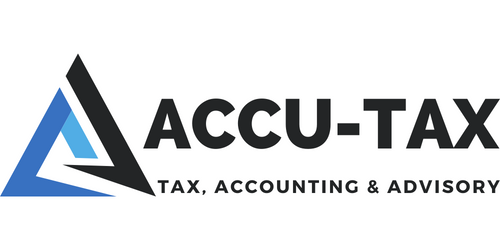
Tax Planning vs. Tax Preparation: Why Both Are Critical for Wealth Growth
Overview
When it comes to building lasting wealth, tax planning and tax preparation are two sides of the same coin. While both are essential for your financial success, they serve very different purposes.
Tax preparation is the process of accurately filing your tax returns each year in compliance with IRS rules. Tax planning, on the other hand, is a proactive, strategic approach that helps you legally minimize your taxes throughout the year—ultimately helping you grow and preserve your wealth.
Together, these two processes form the foundation of a strong financial strategy.
- Tax Preparation: Compliance and Accuracy
Definition and Purpose
Tax preparation is the annual process of collecting your financial documents, calculating your income, deductions, and credits, and filing required federal, state, and local tax returns.
The primary goal is compliance—ensuring all returns are filed accurately and on time, and that you’ve met your legal obligations under the tax code.
Key Elements
- Gathering W-2s, 1099s, K-1s, and other income documents.
- Reporting income, deductions, and credits accurately.
- Filing correct forms such as Form 1040, Schedule C (for business income), and Schedule E (for rental or partnership income).
- Responding to IRS notices or audits when necessary.
Legal Requirements
The Internal Revenue Code (IRC) requires taxpayers to file accurate returns and pay all taxes owed. Failure to do so can result in penalties, interest, and even criminal prosecution for willful evasion.
Limitations
Tax preparation is reactive. Once the year ends, opportunities for strategic tax savings are limited. Preparation ensures compliance—but it can’t create new savings if planning wasn’t done in advance.
- Tax Planning: Strategy and Wealth Maximization
Definition and Purpose
Tax planning is a proactive process of structuring your financial affairs to legally minimize your tax burden and maximize after-tax wealth. It involves analyzing your income, investments, entity structure, and timing of transactions throughout the year.
Key Elements
- Selecting the optimal business entity (e.g., S-Corporation, LLC, Partnership, C-Corp).
- Timing income and deductions strategically.
- Leveraging tax-advantaged accounts like IRAs, 401(k)s, and HSAs.
- Utilizing available credits and deductions (e.g., energy credits, education credits, retirement contributions).
- Structuring major life events—such as the sale of a business or inheritance—for minimal tax impact.
- Implementing international tax planning for cross-border business or investments.
Legal Foundation
The U.S. Supreme Court and IRS both recognize a taxpayer’s right to arrange their affairs to minimize taxes, provided it’s done within the law. The tax code is intentionally designed to reward behaviors that stimulate the economy, such as investing, saving for retirement, and supporting charities.
Examples of Tax Planning Strategies
- Retirement Planning: Contribute to tax-deferred or tax-free accounts like 401(k)s, IRAs, or Roth IRAs.
- Entity Selection: Choose an S-Corporation or LLC to reduce self-employment taxes or leverage the Qualified Business Income (QBI) deduction under IRC §199A.
- Capital Gains Management: Time asset sales to benefit from long-term capital gains rates or offset gains with losses.
- Estate Planning: Use the step-up in basis at death (IRC §1014) to eliminate built-in gains for inherited property.
- International Planning: Utilize foreign tax credits and treaty benefits to avoid double taxation.
- Why Both Are Critical for Wealth Growth
Tax Preparation Alone Isn’t Enough
Without proactive planning, taxpayers often miss major opportunities to reduce taxes and build wealth. Preparation ensures you meet your obligations—but it doesn’t create tax savings after the year ends.
Tax Planning Without Proper Preparation Is Risky
Even the best strategy can fail if your tax return isn’t prepared correctly or if required elections and documentation are missing. Poor preparation can lead to audits, penalties, or loss of deductions.
The Synergy of Both
When combined, tax planning and preparation create a powerful wealth-building system:
- Planning ensures you capture every deduction and credit legally available.
- Preparation ensures those strategies are accurately reflected and protected.
Together, they help you grow, preserve, and protect your wealth in full compliance with the IRS.
- Practical Steps for Effective Tax Planning and Preparation
- Engage in year-round planning—not just during tax season.
- Work with a qualified CPA or tax advisor who understands both strategy and compliance.
- Keep detailed records of income, expenses, and supporting documents.
- Review your tax plan after major life or business changes.
- Stay informed about new tax laws, credits, and deductions.
Staying proactive gives you control over your financial future.
- Conclusion
Tax preparation ensures compliance and accuracy, while tax planning creates opportunity and wealth. One keeps you out of trouble with the IRS—the other helps you get ahead financially.
When combined, they form the cornerstone of a long-term financial growth strategy that minimizes taxes, maximizes savings, and supports generational wealth building.
Need Expert Help with Tax Planning and Preparation?
Contact us, we help individuals and business owners structure their finances strategically—not just to file taxes, but to build wealth.
We specialize in proactive tax planning, entity optimization, and year-round advisory to keep your tax burden low and your wealth growing.
External References

